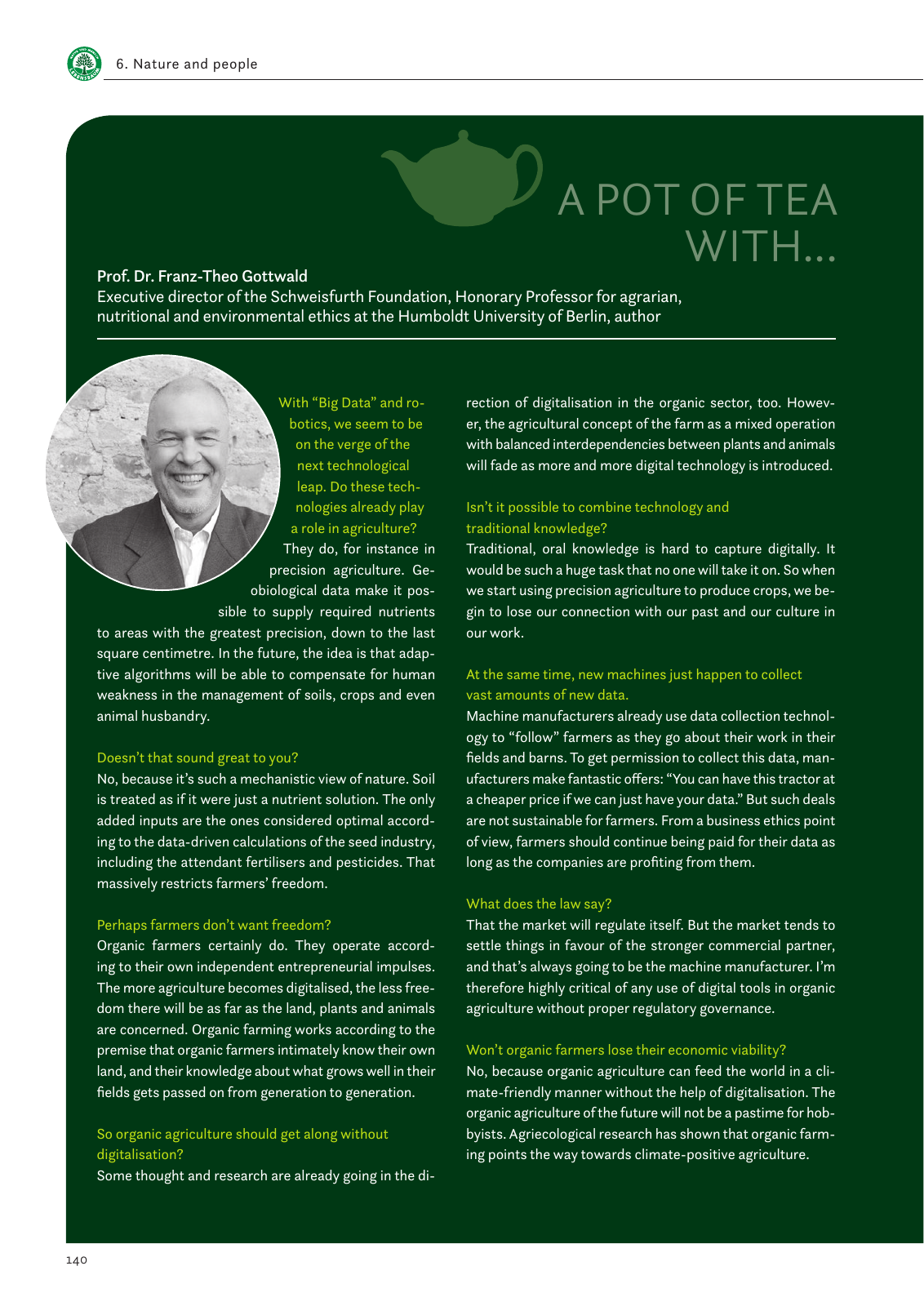140 6 Nature and people With Big Data and ro botics we seem to be on the verge of the next technological leap Do these tech nologies already play a role in agriculture They do for instance in precision agriculture Ge obiological data make it pos sible to supply required nutrients to areas with the greatest precision down to the last square centimetre In the future the idea is that adap tive algorithms will be able to compensate for human weakness in the management of soils crops and even animal husbandry Doesn t that sound great to you No because it s such a mechanistic view of Nature Soil is treated as if it were just a nutrient solution The only added inputs are the ones considered optimal accord ing to the data driven calculations of the seed industry including the attendant fertilisers and pesticides That massively restricts farmers freedom Perhaps farmers don t want freedom Organic farmers certainly do They operate accord ing to their own independent entrepreneurial impulses The more agriculture becomes digitalised the less free dom there will be as far as the land plants and animals are concerned Organic farming works according to the premise that organic farmers intimately know their own land and their knowledge about what grows well in their fields gets passed on from generation to generation So organic agriculture should get along without digitalisation Some thought and research are already going in the di rection of digitalisation in the organic sector too Howev er the agricultural concept of the farm as a mixed operation with balanced interdependencies between plants and animals will fade as more and more digital technology is introduced Isn t it possible to combine technology and traditional knowledge Traditional oral knowledge is hard to capture digitally It would be such a huge task that no one will take it on So when we start using precision agriculture to produce crops we be gin to lose our connection with our past and our culture in our work At the same time new machines just happen to collect vast amounts of new data Machine manufacturers already use data collection technol ogy to follow farmers as they go about their work in their fields and barns To get permission to collect this data man ufacturers make fantastic offers You can have this tractor at a cheaper price if we can just have your data But such deals are not sustainable for farmers From a business ethics point of view farmers should continue being paid for their data as long as the companies are profiting from them What does the law say That the market will regulate itself But the market tends to settle things in favour of the stronger commercial partner and that s always going to be the machine manufacturer I m therefore highly critical of any use of digital tools in organic agriculture without proper regulatory governance Won t organic farmers lose their economic viability No because organic agriculture can feed the world in a cli mate friendly manner without the help of digitalisation The organic agriculture of the future will not be a pastime for hob byists Agriecological research has shown that organic farm ing points the way towards climate positive agriculture Prof Dr Franz Theo Gottwald Executive director of the Schweisfurth Foundation Honorary Professor for agrarian nutritional and environmental ethics at the Humboldt University of Berlin author A POT OF TEA WITH

Hinweis: Dies ist eine maschinenlesbare No-Flash Ansicht.
Klicken Sie hier um zur Online-Version zu gelangen.
Klicken Sie hier um zur Online-Version zu gelangen.